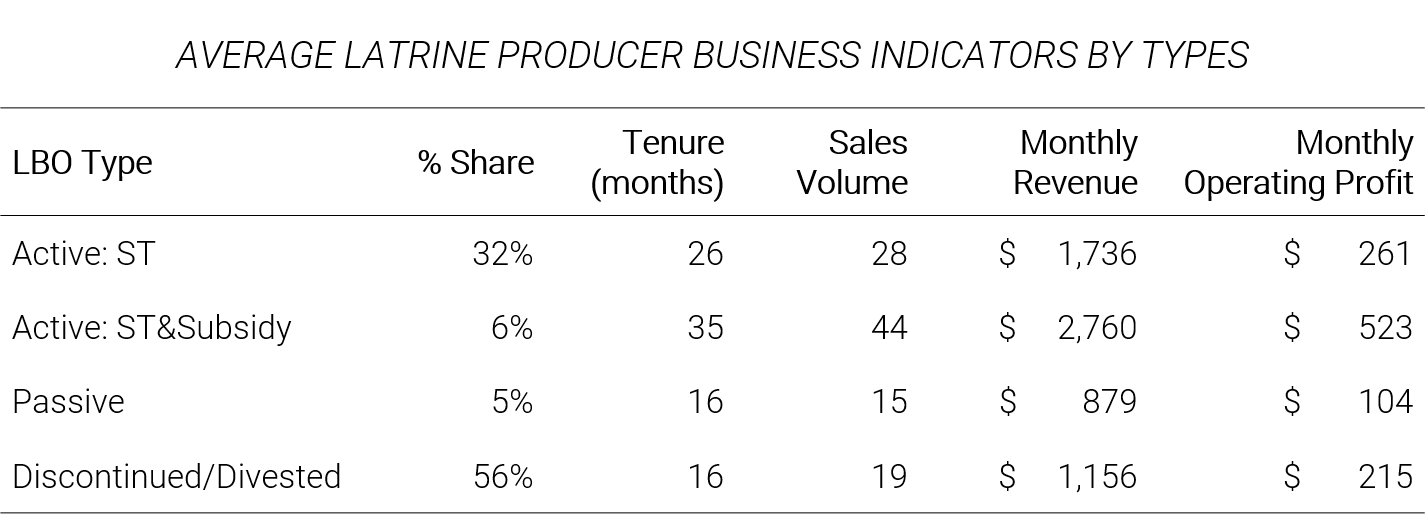Empowering women as market actors

iDE Global WASH
By engaging women as market actors, they gain increased influence, decision-making, and agency.
iDE believes that market-based approaches can create lasting economic empowerment for women through a twin track approach of mainstreaming and targeted activities. Rather than focusing on women as a vulnerable population in need of WASH services, iDE takes a broader view and strives to engage women as agents of change within the WASH market system. We promote women’s engagement at all levels of the value chain—from customers to sales agents to entrepreneurs to our own staff.
Women as purchasers of latrines
It is well documented that women are expected to perform a larger share of household tasks than men, and latrine cleaning and maintenance is no exception. While owning an improved latrine can reduce the burden women face caring for household members who fall ill due to lack of sanitation, women can also experience increased workloads from having to fetch water to flush and clean the new latrine.
When designing WASH products, iDE examines potential ways to reduce household burden and avoid creating new household tasks that will likely fall to women. For example, when iDE began prototyping latrines in Cambodia, women expressed concern that having a household latrine would create additional labor for them as they would be responsible for regularly cleaning it. In response, iDE designed the Easy Latrine and subsequent Easy Latrine 2.0 with tile floors, making it much quicker and easier to clean than a concrete slab. The Easy Latrine also includes a convenient outdoor platform that enables laundry to be washed near a rainwater collection jug, minimizing additional needs to fetch water or to find another space for activities that typically happen in the bathroom anyway. By regularly gathering customer feedback and refining product designs responsively, programs are able to identify and mitigate risks of creating any additional gender inequalities at the household level.
Women play a key role in a household decision to purchase a latrine. Even in households where a woman doesn’t have the authority to purchase a latrine on behalf of the family, she is able to influence decision-makers to invest in sanitation. Designing products and sales messages that appeal to women’s needs and aspirations is critical to engaging them in the purchase process. Sales agents also emphasize messages that women can relay back to their husbands that address their concerns: households cost-savings, information on the construction process, or trusted enterprise and mason contacts. In addition to designing products to prevent significant increased labor for women, sales messaging is carefully crafted to avoid reinforcing gender stereotypes around use and cleaning.
Women’s involvement in the supply chain
Women are a critical component of the sanitation supply chain. Many small-scale latrine producers are family-run businesses or husband-wife partnerships that engage women in various aspects of the business. While their roles vary from country to country and business to business, women are engaged in everything from order management and customer financing through latrine production and installation. In some countries, perceptions of women’s abilities actually makes it easier to promote their work in sanitation. For example, research from iDE Bangladesh indicates that women are perceived to be better at detailed work and quality control, so the program is able to promote women’s participation in latrine production and washing concrete latrine slabs.

Women are powerful agents of change in their own right. Engaging them in the sanitation value chain leads to sustainable, inclusive WASH markets.
By finding culturally acceptable opportunities to train women on business skills as well as the technical aspects of latrine production, iDE believes that they will gain more confidence and influence on making business decisions. Ultimately, increased agency of female business partners will improve the capacity of the business itself, making it a more sustainable enterprise. By directly engaging with women in these businesses, programs are able to influence popular perception of acceptable roles for men and women in the workforce.
Women as Sales Agents
In many countries, engaging women as sanitation sales agents is a natural fit given popular beliefs that women should care about familial health and hygiene. Indeed, in more conservative areas, female sales agents may be more easily able to discuss latrine options with female household members than male sales agents who might not be able to meet with unrelated women. Programs continue to explore how to build on the these opportunities to better reach female customers and end users.
However, women also often face unpaid demands on their time, such as household duties and child care. In order to make it easier for women to join the sales force, iDE does not require sales agents to commit to a full-time role. In iDE’s experience, part-time sales agents have proven to be just as motivated and effective in closing latrine sales as their full-time counterparts. Programs also regularly examine whether there are structural barriers that prevent women from selling latrines. For example, when iDE Ethiopia explored how to better engage women as WASH sales agents, one of the key learnings was that potential sales agents are usually referred to the program by village authorities, who are often men. As a result, most prospective sales agents are men, leading to an imbalance in sales staff. The program is now investigating ways to achieve more parity in sales agent recruitment.
Measuring Women’s Empowerment in WASH
However, participation in the sanitation value chain or benefiting from improved WASH products and services does not automatically ensure that women are more empowered. Under a research grant funded by DFAT’s Water for Women Fund, iDE is partnering with the Institute for Sustainable Futures at the University of Technology Sydney to contribute to the development of a multi-dimensional index to understand the attributable impacts of WASH on gender equality. iDE Cambodia’s WASH program will provide input into indicator and index design and lead data collection in Cambodia to refine the index.